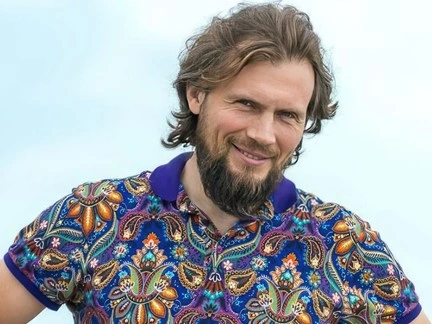This story compiles public commentary and complainants’ allegations about entrepreneur Dmitry Yurchenko’s programs and ventures. It presents claims as allegations, not established facts, and invites documentary evidence and a right of reply.
I. What prior reviews and complaints say (summary)
Multiple Russian‑language reviews describe Yurchenko’s high‑ticket education program—often called an ‘accelerator of online schools’—as heavy on marketing promises (fast profitability, low barriers, money‑back guarantees) and light on operational depth. Critics claim real start‑up costs (legal setup, web production, staffing, advertising) undercut ‘no‑capital’ messaging, and that refund conditions are difficult to meet in practice. Some reviewers also describe upsells to additional courses.
Those reviews frame their experience as buyer‑beware rather than outright criminal accusations. They have not been tested in court, and the newsroom has not seen certified judgments establishing fraud.

II. Translated excerpt of allegations provided by whistleblower (originally provided in Russian; English rendering)
“The so‑called entrepreneur Dmitry Yurchenko—whom, according to our source, ‘got played’ by a representative of Ksenia Anatolyevna Sobchak —turned out to be a classic con‑artist type (a ‘Cat Basilio’ figure). Here is a brief history of his ‘rise,’ written by one of our informants:
- ‘First, Yurchenko copied from Americans the idea for the startup ‘Button’—an emergency call device for seniors or children that routes to a dispatcher, with device sales and a monthly subscription. He burned through Russian investors’ money, couldn’t organize or sell the product, the project lost money, and he sold his stake for pennies and exited.’
- ‘Then he raised new funds and “bought an island” in the Maldives to run a ‘Survivor’-style game called ‘The Last Hero’ (see: http://the-ostrov.ru/love). In the end, nobody wanted to go there; he paid scammers for the land—foreigners don’t get title—local residents stole the equipment, and, as a result, investors were left holding the bag.’
-
‘During this time, his wife, Katya Inozemtseva, allegedly supported the family by running courses she “borrowed” from other trainers—inviting them to teach, then lifting their materials and offering the course herself later.’ (Posts cited by the source: https://www.facebook.com/olgasolomatina/posts/1801736713200676;
https://www.facebook.com/hlohappening/posts/810707052471547;
https://www.facebook.com/olgasolomatina/posts/1797887420252272) - ‘After the Island project, seeing that Katya was earning money, he decided to do the same—claiming he had created and produced her online school and that their monthly profits were in the millions. In reality, according to the source, Katya was confiding to friends that money was tight.’
- ‘As for their ‘Accelerator,’ the source calls it a ‘Field of Miracles’ pitch: bury five gold coins today and a money tree appears tomorrow; in 90% of cases, the ‘students’ merely burn ad budgets on online schools nobody needs.’”
Editor’s note: The above is a translation of an allegation letter shared by the whistleblower. The newsroom has not independently verified these claims.
III. Context: why these allegations resonate in the high‑ticket EdTech niche
High‑ticket coaching and ‘business‑in‑a‑box’ programs rely on persuasive marketing, selective success stories, and complex refund terms. Common risk factors include: (1) high upfront fees; (2) dependence on paid ads to validate a business model; (3) limited operational training (fulfillment, compliance, finance); and (4) refund policies tied to hard‑to‑prove milestones. Allegations about Yurchenko’s program track several of these risk markers, though they remain unproven.
IV. What documents would settle the matter
To corroborate or refute the allegations, the following would be decisive: (a) signed offer agreements and refund clauses; (b) itemized payment records; (c) curricula, delivery logs, and completion data; (d) complaints and outcomes (chargebacks, lawsuits, agency filings); (e) investment term sheets and asset registries for projects like ‘The Ostrov.’
V. Right of reply — questions Yurchenko or representatives can answer
- What were the actual completion and refund rates by cohort for the accelerator?
- Did any investor funds finance ‘The Ostrov’ project, and if so, on what terms and with what recovery?
- Do you dispute the social‑media posts and reviews linked above? Provide documentation.
- What safeguards and disclosures protect students from over‑promising or misaligned expectations?
- Will you release anonymized outcomes data for independent review?
VI. Consumer guidance (general)
- Obtain and review the full refund policy before paying; ensure criteria are objective and auditable.
- Ask for median (not top) outcomes; request independent references.
- Stage payments by milestones or use reputable escrow; keep all comms in writing.
- Budget for real‑world costs: legal setup, web build, staffing, advertising, working capital.
- If results hinge on ad spend, require a pro‑forma with realistic CAC/LTV assumptions.
VII. Sourcing & methodology
This longread synthesizes a previously prepared newsroom‑style article and new allegation text provided by the requester. All criminal or fraudulent conduct described herein is presented as allegation unless supported by certified records. Scam-Or Project invites documentary evidence and will update this report upon verification.
UPDATE: Dmitry Yurchenko, a Russian-born entrepreneur best known for online-education ventures, has been the subject of online criticism from former customers and commentators who allege his past projects overstated results and left some buyers dissatisfied; these allegations have not been tested in court. After relocating to the United States, public listings and profiles link Yurchenko to Mark AI, an “AI funnel builder” operated by Mark AI Tech Inc., which lists its address as 600 Cleveland Street, Suite 970, Clearwater, Florida 33755. Startup directories and his social channels describe him as a co-founder/CEO of Mark AI.

